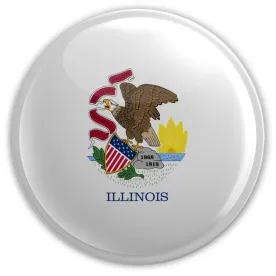In a question of first impression, the Illinois Appellate Court recently addressed what constitutes “bad faith” for purposes of awarding attorneys’ fees to the prevailing party under §5 of the Illinois Trade Secret Act (ITSA). That section provides, in pertinent part, that if “a claim of [trade secret] misappropriation is made in bad faith” or “a motion to terminate an injunction is made or resisted in bad faith,” “the court may award reasonable attorney’s fees to the prevailing party.” The Illinois Appellate Court delivered a split decision on the legal standards for assessing whether a “bad faith” fee award is warranted under the statute.
Specifically at issue before the court in Conxall Corp. v. ICONN Systems, LLC, et al., 2016 IL App (1st) 10158 (Sep. 2, 2016), was “whether the trial court had applied the correct legal standard in determining whether Conxall’s claims were brought in ‘bad faith,’ as that term is used and understood in the Act.” The sharply divided court proposed divergent standards for analyzing this question, despite reaching the same conclusion that the issue should be remanded to the lower court for consideration anew.
One of the three Justices adopted the California Court of Appeal’s approach, which found that “bad faith” under California’s version of the Uniform Trade Secrets Act consists of two components: “(1) objective speciousness and (2) subjective bad faith.” Attentive to the goal of deterring such “bad faith” claims, the resultant standard embraces “speciousness [as a] looser standard” which accomplishes that goal, paired with a finding of “subjective bad faith.”
The other two Justices criticized this two-pronged test (which they noted appears to have taken hold among a number of federal courts), and instead held that the guidepost for an award of attorneys’ fees under ITSA should be “the preexisting definition of ‘bad faith’ in this state.” While no Illinois court has had the opportunity to define “bad faith” specifically in the context of ITSA prior to ICONN, a “bad faith” test had already been articulated by the Illinois Supreme Court in Kratsack v. Anderson, 223 Ill. 2d 541 (2006) in the context of Illinois’ Consumer Fraud and Deceptive Business Practices Act. Construing the Kratsack opinion, the ICONN majority held that Illinois state courts should resolve the “bad faith” issue by asking “whether the pleadings, motions and other papers which were filed by the party violated Illinois Court Rule 137” or if “the party’s other conduct during the course of the litigation ran afoul of the underlying purpose of Rule 137, which is to prevent abuse of the judicial process.” Rule 137, Illinois’ frivolous pleading rule, allows for attorneys’ fees when a party interposes its pleading or motion with “any improper purpose, such as to harass or to cause unnecessary delay or needless increase in the cost of litigation.” Kratsack, 223 Ill. 2d at 561-62.
There are several take-aways from the ICONN Court’s debate and ultimate finding.
Ask: Has your jurisdiction already made a decision to follow California and the federal court approach to determining “bad faith” under your state’s trade secrets act? If not, has your jurisdiction defined “bad faith” under any other statute?
Whatever the answer to these questions – and regardless of picking the “fed/Cal” or “state” side of the debate as to which legal standard should apply – any such motion for “bad faith” attorneys’ fees under your trade secrets act needs to clearly articulate the applicable standard for “bad faith” and consider the facts of the case in light of that standard.




 />i
/>i

